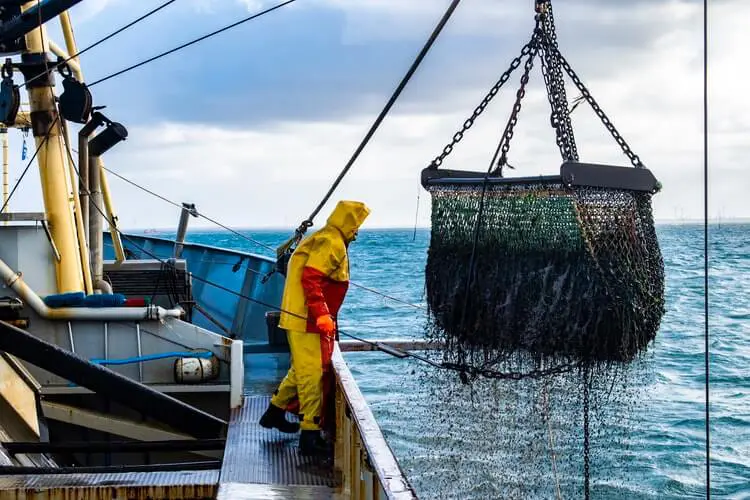6.1 billion EUR for sustainable fisheries and safeguarding fishing communities
- Funding must not result in an increase in fishing capacity
- Tailored support for small-scale coastal fishing, young fishermen and outermost regions
- Fighting illegal, unreported and unregulated fishing
On Friday, EU legislators reached a provisional agreement on how EU countries will be able to spend funds allocated to fisheries and aquaculture for 2021-2027.
The European Maritime, Fisheries and Aquaculture Fund (EMFAF) for the period 2021-2027 amounts to 6.1 billion EUR (6.108 billion EUR in current prices). 5.3 billion EUR will be allocated for the management of fisheries, aquaculture and fishing fleets, while the remaining sum will cover measures such as scientific advice, controls and checks, market intelligence, maritime surveillance and security.
Member states will have to spend at least 15% of the money on efficient fisheries control and enforcement, including fighting against illegal, unreported and unregulated fishing. In line with the Green Deal, actions under the fund will contribute to the overall budget objective to dedicate 30% of funds to climate action.
Compensation for fishermen
If fishermen’s activities cease permanently, they can be supported to scrap or decommission a vessel. In order to receive compensation, the equivalent fishing capacity is permanently removed from the EU fishing fleet register and the beneficiary must not register any fishing vessel within five years of receiving support.
If fishing activities cease temporarily, fishermen may be granted compensation for a maximum duration of 12 months per vessel or per fisherman during the programming period.
Specific needs of small-scale coastal fishing and young fishermen
Member states will need to take into account the specific needs of small-scale coastal fishing, including simplifying administrative requirements. Also, first acquisition of a fishing vessel or partial ownership (of at least 33%) can be funded if the fisherman is no more than 40 years of age and has worked for at least five years as a fisherman or has acquired the equivalent qualification. Fishermen can purchase small-scale coastal vessels (total length less than 12 meters) that have been registered for three years or vessels up to 24 meters that have been registered for five years.
Small-scale vessels may also receive support to replace or modernise engines if the new or modernised engine does not have more power in kW than that of their current engine.
Improving safety, working conditions and energy efficiency
A fishing vessel that is not longer than 24 meters and older than 10 years can have its gross tonnage increased if this results in significant improvements, such as renovating accommodation and other facilities for the well-being of the crew, better on-board fire prevention and safety systems, increased energy efficiency or lower CO2 emissions.
Other key measures
– Engines can be replaced or modernised under strict conditions: for vessels between 12 and 24 meters and at least five years old, the new or modernised engine must not have more power in kW and a reduction of 20% CO2 emissions must be ensured; the fishing capacity withdrawn due to engine replacement or modernisation cannot be replaced.
– Focus on outermost regions: member states will have to prepare an action plan for each of their outermost regions; specific budget allocations are foreseen.
– Support may also be granted for storage of fisheries products in exceptional events generating a significant disruption of markets.
Quote
Rapporteur Gabriel Mato (EPP, ES) said: “We reached a balanced agreement on the future European Maritime, Fisheries and Aquaculture Fund. A fund that would enable the EU fleet to fish and farm better, not to fish more. A fund that would allow the sector to invest in workers’ safety and wellbeing and environmentally-efficient engines and vessels. And a fund that would allow for generational renewal, while avoiding overcapacity and overfishing. The fishing and aquaculture sectors and the whole seafood value chain need support now more than ever to face current and future challenges.”
Next steps
Parliament and Council are now expected to endorse the agreement. The provisions of the regulation will then apply as of 1 January 2021.
Background
The European Maritime and Fisheries Fund proposal was published by the Commission in June 2018 and refers to the Multiannual Financial Framework for 2021-2027. The previous EMFF budget covering the years 2014 to 2020 amounted to 6.4 billion EUR.







